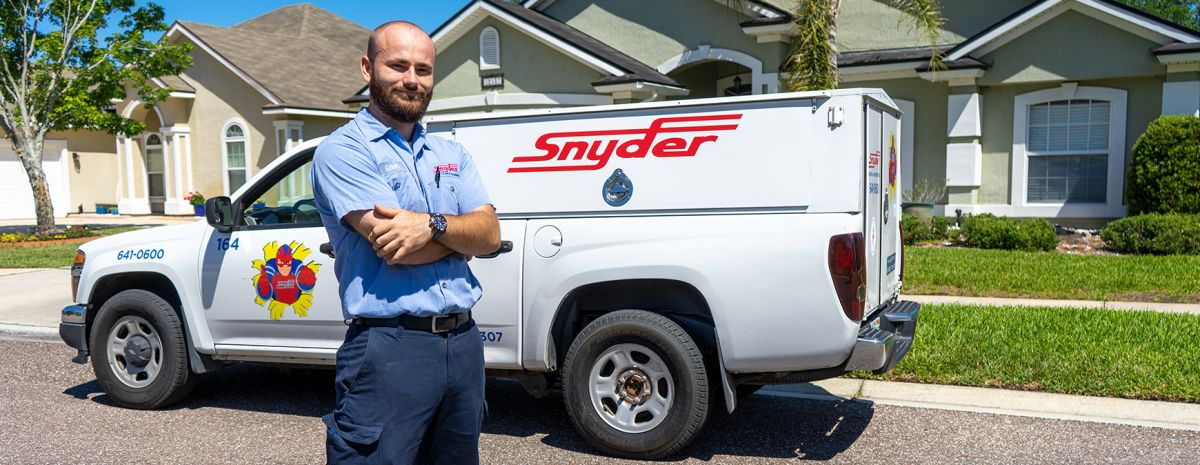TWS is a Great Training Option for Everyone
Learn more about how we can prepare you to advance your career.
As the industry navigates innovation and sustainability, the need for trained HVAC professionals becomes more critical than ever before. The U.S. Bureau of Labor Statistics projects the growth of HVAC employment in the US at 5 percent by 20311. Why are we seeing this demand for HVAC professionals?
The Rising Tide of Demand
As technology progresses and environmental concerns intensify, there’s an increasing requirement for HVAC professionals who can install, maintain, and repair complex HVAC systems that incorporate innovative technology, energy-efficient components, and greener refrigerants.
Becoming an HVAC technician opens doors to a diverse range of career opportunities. HVAC technicians are the backbone of a well-functioning society, from working with residential systems to tackling industrial-scale challenges. They’re the experts who ensure that our homes, offices, hospitals, and commercial spaces remain comfortable and functional.
Adapting to Changing Needs
The evolution of the HVAC industry brings a changing skill set for HVAC technicians. Modern HVAC systems require knowledge of smart technology, data analysis, and energy-efficient practices. HVAC technicians are problem solvers and innovators who find creative solutions to optimize system performance and reduce energy consumption.
Have You Considered a Career in the Skilled Trades?
Fill out the form to recieve a no obligation info packet.
The growing demand for HVAC technicians1 echoes a call for trained professionals who can bridge the gap between technological sophistication and real-world application. As HVAC systems become more intricate, the need for skilled individuals to install and maintain them becomes paramount. The industry is seeking HVAC technicians with expertise to keep pace with evolving trends.
Becoming an HVAC Technician
If you’re intrigued by the dynamic and ever-evolving world of HVAC, you might wonder how to enter this exciting field. Becoming an HVAC technician is paved with opportunities for growth, learning, and the satisfaction of playing a crucial role in creating comfortable and sustainable indoor environments. Let’s walk through the steps of this journey and unveil the benefits of embarking on a vocational program in HVAC.
Step 1: Education and Training
The first step towards becoming an HVAC technician is to acquire the necessary education and training. While a high school diploma is the minimum requirement, formal education provides a solid foundation for success in this field. And in this competitive market, a diploma can set you apart.
Step 2: Enroll in a Vocational Program
Enrolling in a vocational program focused on HVAC is a strategic move. These programs offer comprehensive training that covers the fundamentals of heating, ventilation, and air conditioning in addition to more advanced topics like refrigeration systems, electrical components, and troubleshooting techniques. This HVAC program will prepare you for the certification exam that follows your apprenticeship.
Step 3: Certification and Licensure
Obtaining an industry certification like the one from NATE (North American Technician Excellence) is a cornerstone of your journey. Certifications demonstrate your proficiency and commitment to excellence in HVAC. Additionally, some states require HVAC technicians to hold specific licenses to work independently, ensuring their competence and compliance with regulations.

New: Industrial Maintenance
Learn About Our New Advanced Industrial Maintenance Program in Houston
Tulsa Welding School is proud to announce our newest program offering available at our Houston Campus – Advanced Industrial Maintenance Technology! Learn the skills you need to take on the industries of manufacturing, distribution, energy production and facility maintenance in as few as 7 months.
Step 4: Launching Your Career
Armed with education, training, and certifications, you’re poised to launch your career as an HVAC technician. The demand for skilled professionals in this field translates to a range of career prospects, from working for established HVAC companies to pursuing entrepreneurial ventures. Tulsa Welding School offers career services to assist you in finding the right apprenticeship.
Want to Learn More?
Because HVAC is a hands-on job, technical training is typically required for anyone to enter this field. Many people invest in a trade program to learn the trade skills they need to be safe and effective as a professional. To learn more about our Refrigeration Technologies Training program, contact us at Tulsa Welding School or call 1-855-981-7313.
1Employment is expected to grow for Heating, Air Conditioning, and Refrigeration Mechanics and Installers (499021) in the US by 5% through 2031 https://www.careeronestop.org







